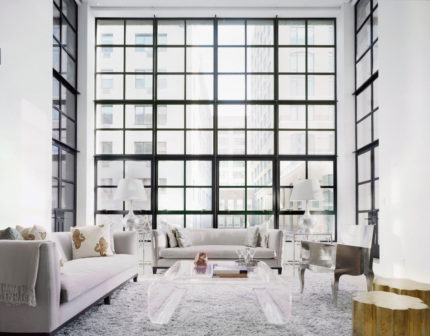
In 1929 the world experienced The Great Depression, and in 2008-9 the Great Recession, but in 2016 we experienced The Great Correction (in the luxury sector), a period where for the first time in history the price of luxury homes in many areas scaled back rather dramatically NOT fueled by an equity markets plunge. Luxury goods as a whole are experiencing a similar reversal of the runaway ‘LUXFLATION’ that seemed to add 7-10% in pricing annually, often without much justification.
I have always spoken about ‘LUXFLATION’, the measure of pricing increases on luxury goods, and how in recent years those escalations spiraled upwards. They escalated so rapidly and so far that in 2016 the luxury consumer stopped to catch their breath and pulled back…..even though they were wealthier than at any other time in history. 2016 saw a significant pull-back in pricing and trading volume on the high end in many areas, especially Manhattan, The Hampton’s, London and Aspen. Inventories grew and asking prices dropped, especially the ‘runaway luxflation’ prices that simply added on 10-20% arbitrarily. Even luxury goods stalwart retailer Neiman Marcus is experiencing major resistance from wealthy buyers who are tired of the rampant inflation on luxury goods and seek ‘deals’ and ‘discounts’. Reducing quality while raising prices is not resonating amongst the wealthy.
Here are the TOP 10 reasons why this happened (in my humble opinion):
1. Seller expectations became over-heated. When pricing spirals upwards without too much rhyme or reason, the wealthy become nervous and cautious. And angry. Even Neiman Marcus shoppers are looking for discounts!
2. Wealthy buyers live by the Warren Buffet investing rules: “Rule No. 1: Never lose money. Rule No. 2: Don’t forget rule No. 1”. The fear of buying at a high is anathema to the rich.
3. Wealthy buyers can wait. At the tail end of a rapidly escalating cycle, the wealthy apply caution. A ‘wait-and-see’ mode is safe and comfortable.
4. Global political uncertainty in 2016 did not help. Terrorist attacks fueled fear and a focus on the less materialistic aspects of life. This always happens in cycles.
5. London’s BREXIT vote caused shock-waves, yet their new real estate taxes dampened the markets much further.
6. Nationalism scared many foreign buyers and combined with a super-strong dollar took out a small but potent group of real estate buyers.
7. The investor-buyer focused on large capital gains due to soaring markets saw the tail end of this luxflation and pulled back or pulled out.
8. Many investor buyers who had been promised enormous rental returns on super-luxury homes started to see inventory of this classification grow and rental pricing pull back.
9. While the number of very wealthy people continues to grow, the volume of ultra-luxe homes being built is out-stripping demand and this will take time to absorb. The good news? Once absorbed, it will take years to re-boot production and another price-growth-cycle should emerge.
10. Real Estate Marketers, bankers and developers that relied on averages in pricing applied average pricing and were often mistaken: averages offer poor insight and data, and sooner or later those ‘average’ prices simply don’t make sense in most circumstances. Real estate is hyper-specialized. Ignoring fundamentals and on-the-street insights leads to poor decision making.
The good news? The correction has already happened. And when I say ‘correction’ I mean many real estate prices that were out of line with the quality of the product have been corrected. In areas the correction has been enormous, up to 25-30%. In other areas the correction was much smaller. There are still some properties that will always command a huge premium, mostly justifiably. And there are others that were simply over-priced. In retail, online shopping has already dampened unrealistic retail pricing escalations and the online consumer abused for decades by never-ending price escalation is finding better prices and service online. Properties that are now priced at or below market are selling, and some properties offer incredible opportunity, well beyond the absorption of a potential market turn-down or interest rate hike.
Leonard Steinberg
